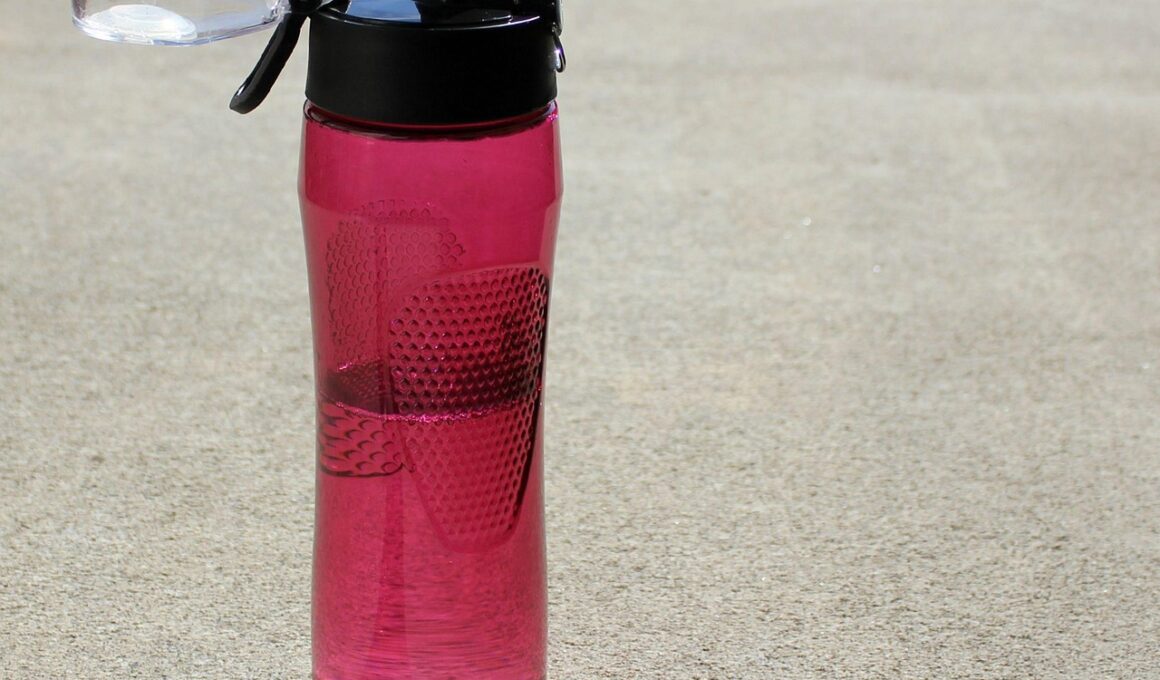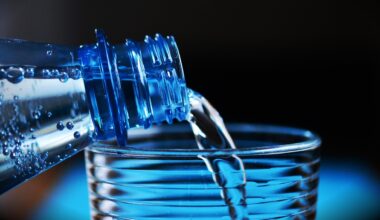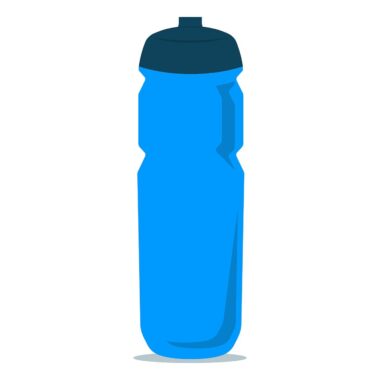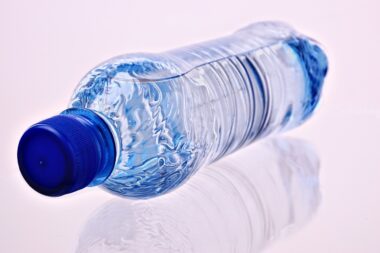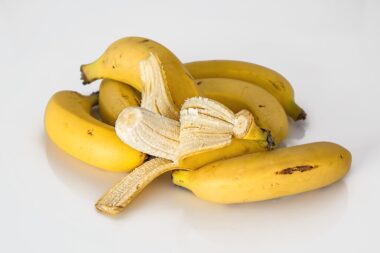How Temperature and Sweat Affect Your Electrolyte Levels
Understanding electrolytes plays a crucial role in pre-workout nutrition. Electrolytes are minerals that carry an electric charge and are essential for maintaining your body’s hydration balance. The primary electrolytes involved in hydration include sodium, potassium, magnesium, and calcium. These minerals help regulate various bodily functions, including muscle contractions, nerve signaling, and acid-base balance. When exercising, especially under high temperatures, the body loses significant fluids through sweat. This loss can lead to electrolyte imbalances, affecting performance and recovery. Without adequate electrolytes, athletes can experience muscle cramps, dehydration, and fatigue during workouts. It’s vital to replenish electrolytes lost during exercise to ensure optimal performance. Consuming foods rich in these minerals, like fruits, vegetables, and sports drinks can help maintain balance. Many athletes also opt for electrolyte supplements before or during their workouts. Balancing hydration with electrolyte intake can positively impact exercise endurance and overall health outcomes. Planning your electrolyte intake around your workout routine can enhance both performance and post-exercise recovery time significantly. Stay informed about your body’s needs for hydration and electrolyte levels to maximize your fitness goals.
Effects of Heat on Electrolyte Balance
Heat significantly impacts how much electrolyte your body requires during workouts. As temperatures rise, your body sweating increases, and this leads to further electrolyte loss. Sodium is usually the most frequently lost electrolyte, making its replenishment crucial. For physically active individuals, especially in warmer climates, tracking sodium levels is essential. When exposed to high temperatures, your body will not only lose a greater volume of sweat but also a considerable amount of sodium. This rapid loss can affect hydration and performance negatively. Furthermore, dehydration resulting from excess heat can lead to severe cramping and other complications. Potassium, another vital electrolyte, must also be replaced but is typically retained better amidst sweating. Consuming potassium-rich foods like bananas or avocados pre and post-workout can provide essential benefits. In managing electrolyte balance, hydration strategies must evolve with environmental factors. Utilizing sports drinks may be advantageous, as they often contain electrolytes specifically formulated to match sweat loss. Proper hydration strategies, including electrolyte replacement, can help athletes perform at their best during heat stress conditions.
Optimal hydration goes beyond just drinking water; it involves understanding the significance of electrolytes in your drink. Waters or beverages that lack essential electrolytes may not provide adequate hydration, especially during intense or prolonged workouts. Sports drinks are specifically designed to rehydrate while replenishing vital electrolytes lost in sweat. These drinks usually contain a precise balance of sodium, potassium, and magnesium. Each of these is crucial for performance since they help maintain muscle function and fluid balance. When selecting an electrolyte-rich drink, always check the label as some contain excessive sugar or calories. Aim for drinks with less than 100 calories per serving. Additionally, consuming whole foods high in electrolytes before, during, and after workouts supports hydration strategies effectively. Foods such as watermelon, coconut water, or electrolyte gels offer a variety of ways to replenish what you lose during exercise. Hydration should be maintained not only during workouts but throughout the day. Recognizing how electrolyte levels fluctuate with changes in temperature and sweat is key to optimizing performance. Keeping a careful watch on hydration levels can ensure ideal conditions for training or competition.
Signs of Electrolyte Imbalance
Adequate awareness of your body’s signals can prevent complications resulting from electrolyte imbalances. Common signs of imbalance include nausea, dizziness, unusual fatigue, and muscle cramps. When not addressed, these symptoms can exacerbate health risks, affecting peak performance. Additionally, a loss of coordination can indicate an electrolyte deficiency affecting the nervous system’s functionality. It’s essential to listen to your body and adapt your nutrition strategy accordingly. Athletes sweating excessively may notice their performance deteriorating due to imbalances. In such cases, immediate electrolyte replenishment is recommended, either through food sources or sports drinks. Recognizing these early warnings is vital for maintaining overall health during training regimens. Depending on the intensity of workouts and environmental conditions, customizing hydration plans can help cope with fluctuations. For example, increasing electrolyte intake during summer workouts can maintain performance levels. Health professionals often recommend testing electrolyte levels for anyone experiencing frequent cramps or prolonged fatigue. Staying attuned to these physical responses ensures that hydration status remains optimal while pushing through rigorous training sessions.
The composition of your pre-workout drink can greatly influence your performance. Selecting drinks that are balanced in both carbohydrates and electrolytes is critical for energy. Carbohydrates offer readily available fuel, while electrolytes ensure hydration and proper bodily function during workouts. Combining these ensures long-lasting endurance without crashes. For those intending to work out in high-temperature conditions, a drink fortified with electrolytes should be a priority. However, not all beverages are created equal; read nutritional information to choose the right fit for your needs. Replacement drinks should ideally contain about 200-300 mg of sodium and balance potassium adequateness. For heavy workouts, carb-to-electrolyte ratios may shift based on the individual’s needs. An optimal balance between hydration and energy can maximize endurance while minimizing fatigue during and after efforts. Cold beverages can have added benefits, including cooling the body and enhancing those hot-weather workouts. Pairing hydration with proper nutrition strategies will not only help you perform better at exercise but will also speed up recovery times. Ultimately, knowing what to consume pre-workout goes a long way in supporting your athletic endeavors and goals.
Active Recovery and Nutrition
Post-workout recovery nutrition is just as essential as pre-exercise hydration strategies. Once you finish a rigorous workout, your body begins the recovery phase, and replenishing lost electrolytes helps speed this process. Consuming foods and drinks high in electrolytes immediately post-workout will aid in restoring balance. Ideal choices include replete servings of potassium from items like sweet potatoes and bananas, while sodium-electrolyte drinks can be beneficial for quicker recovery. Focusing on protein in post-workout meals also supports muscle recovery and repair. Consider preparing wholesome shakes that include protein, electrolytes, as well as carbohydrates for balanced recovery. Timing matters — when an athlete consumes post-workout meals can influence recovery speed. Aim to hydrate and replenish within a 30-minute window post-exercise. This timely approach signals your body to commence repair work effectively. Additionally, integrating rest days with appropriate nutrition allows full recovery from electrolyte depletion and muscle fatigue. Making consistent healthy choices around workout and recovery days can greatly enhance overall performance levels and set the foundation for achieving long-term fitness goals.
Being proactive about managing hydration and electrolyte levels throughout your training can yield lasting performance improvements. Combining knowledge of personal hydration needs with consistent monitoring can help you understand your body’s requirements in various conditions. For those training in challenging environments, electrolyte supplements can make a notable difference. Evaluating external conditions such as temperature, humidity, and duration of workout sessions is crucial to conditioning your hydration plan effectively. Awareness of these factors ensures that you can maintain balance throughout all training scenarios. Additionally, tracking your electrolyte intake can reveal patterns and impacts on performance, assisting goal goals easier to achieve. Adopting an individualized approach in response to sweat loss and nutritional habits will further enhance athletes’ performance. Learning how temperature affects your body makes it clearer when adjustments should be made. Ultimately, having suitable hydration and electrolyte strategies can transform workout results, pushing athletes further toward their fitness aspirations. Regularly evaluating and adapting hydration plans can lead to enhancements in stamina, muscle, and energy levels, leading to overall better experiences during every workout.
